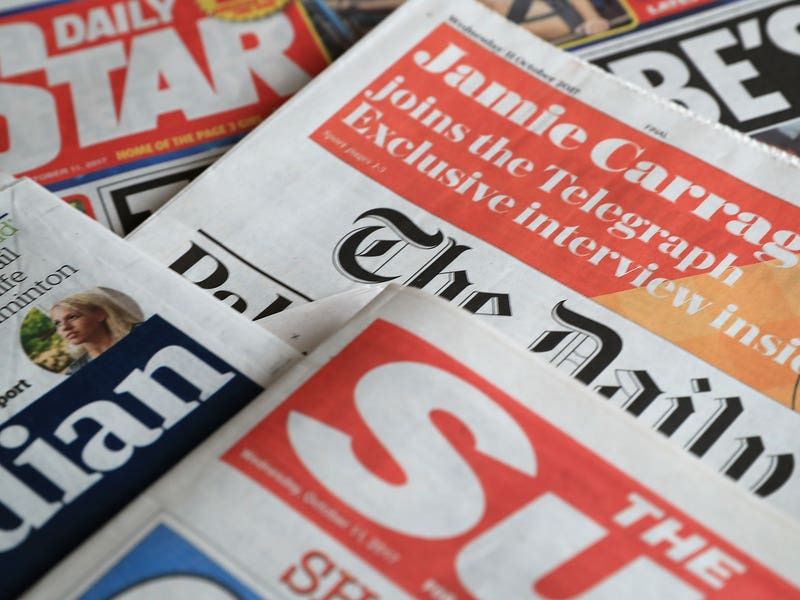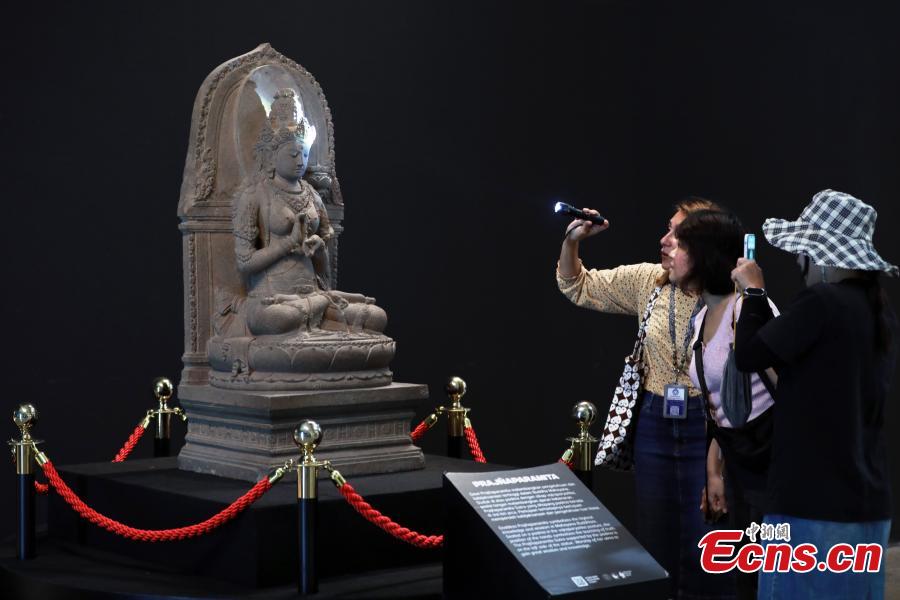
Some Iowa county auditors have improperly processed “mass voter challenges” just weeks before the Nov. 5 general election, contrary to state and federal law, according to the American Civil Liberties Union. The ACLU could not provide specific numbers of affected voters and encouraged reporters to investigate further.
It also could not say how voters were targeted for the challenges. The Iowa Secretary of State’s Office last week emailed county auditors and county attorneys about challenges to Iowa voters’ registrations occurring across the state, and reminding them that state and federal laws prevent them from removing registered voters from their voting lists shortly before the election. The Oct.
23 email states the Secretary of State’s Office was recently alerted by VoteShield, a vendor used by the office to monitor voter registration data for anomalies, that a number of counties were improperly processing challenge-related cancellations. As a result, some voters have had their registrations wrongfully canceled based upon these challenges, according to the ACLU. The national ACLU and the ACLU of Iowa have sent letters to all 99 Iowa county auditors and the Iowa Secretary of State’s Office to ensure they follow state and federal laws, and urges them to reinstate any voters they may have improperly removed.
The letter references complaints from impacted voters about challenges from private parties asking for the voter registration cancellation of thousands of voters in Johnson, Muscatine and Pottawattamie counties. The ACLU notes the Iowa and federal law are intended to fend off such efforts that could incorrectly push out eligible voters without giving them enough time to defend their eligibility. Iowa Secretary of State Paul Pate.
(Photo courtesy Iowa Secretary of State) Pate’s email states, “If the information that we have is correct, and your county did process cancellations as part of a voter registration challenge, we strongly suggest your offices meet to discuss whether reversing those challenges until after election day is prudent.” Iowans are able by state law to challenge voter registration information at any time, if they believe the information is incorrect or fraudulent. However, Iowa law specifies that voter challenges cannot be processed less than 70 days before the next election.
Federal voting law also generally prohibits purging individuals from voter rolls 90 days ahead of the election. Those deadlines are in place to make sure that if someone's registration is challenged, they have enough time to appeal it before Election Day, said Ari Savitzky, a senior staff attorney with ACLU Voting Rights Project. Iowa law contains exceptions.
If a challenge is received within 20 days of a new registration or a change to a voter’s existing registration, it can be processed at the time the auditor determines there is sufficient evidence to warrant cancellation. Voter registration challenges also can be processed immediately if the registered voter has died, and sufficient evidence is presented. Federal law also allows removal based on conviction of a felony, the death of the voter or a correction to the registration records.
ACLU of Iowa Legal Director Rita Bettis Austen said the mass voter challenges are being submitted amid a rise in efforts around the country to remove a large number of registered voters based on “flawed efforts to match up the voter file with incomplete or unreliable and often outdated sources of information.” “These appear to be the type of malicious, mass voter challenges by individuals and groups who want to disrupt the election,” Austen said. “ .
.. They are not based on any personal knowledge about voters, and they’re meant to create a false narrative about voter fraud.
The strong safeguards in state and federal law against these efforts exist for a reason. It’s sad and frankly outrageous that these efforts may be taking place in Iowa.” Rita Bettis Austen, ACLU of Iowa legal director Former president Donald Trump and his Republican allies have pushed a false narrative that noncitizens are voting in droves to sow public mistrust and lay the groundwork for a potential challenge of the results of the Nov.
5 election should he lose. Studies and audits by state election officials indicate that voting by noncitizens is rare. The Cato Institute, a libertarian think tank, called claims of widespread noncitizen voting “bogus” this year after reviewing state policies and previous audits.
The ACLU notes requests for mass removal of Iowa voters from the voter registration lists is separate from Iowa Secretary of State Pate’s directive issued last week to county auditors to have poll workers challenge more than 2,200 registered voters based on citizenship. Pate has sent a list of more than 2,000 potential noncitizens — people who have reported to the Iowa Department of Transportation that they are noncitizens in the past 12 years and since registered to vote — to county auditors, requiring the individuals to cast provisional ballots, though advocates say a majority are likely naturalized citizens. Austen advised new citizens to contact the ACLU or their county auditor if they are concerned about their voter registration or ballot being challenged.
During the 2022 election, Iowa elections officials saw a surge of challenges to voter registration files inspired by a 2020 election results denier. Local elections officials said they typically receive roughly a handful of challenges to voter registrations each election cycle. "But what is most important here is that Iowa voters know that state and federal laws protect them from these efforts and that fortunately, our Iowa election officials know that,” the ACLU’s Austen said.
“We want Iowa voters to take heart and exercise their right to vote with confidence. Our democracy depends on all of us.” The decision by The Washington Post and Los Angeles Times not to publish endorsements of a presidential candidate has led to resignations.
Every four years, presidential candidates raise hundreds of millions of dollars that they pour into events, appearances, staffing, TV ads, and, increasingly, targeted social media campaigns. At the end of August, Vice President Kamala Harris had raised $235.5 million and former President Donald Trump had raised $134.
6 million, according to public filings with the Federal Election Commission. What's more, according to data analyzed by researchers at the Syracuse University Institute for Democracy, Journalism & Citizenship, the Harris campaign outspent the Trump campaign on Meta platforms, including Facebook and Instagram, in the 12 months leading up to September. That's despite Harris' late entrance into the race at the end of July.
Collabstr analyzed advertising data from Meta made public by Syracuse University's IDJC to illustrate how the Republican and Democratic parties and political influencers are spending advertising dollars on Facebook and Instagram ahead of the hotly contested presidential election. Data was collected from Meta in partnership with Neo4j and analyzed by the IDJC. The database includes posting and spending activity for almost the last year, spanning September 2023 through August 2024.
While he was outspent over the period studied, former President Trump also owns his own social media platform, Truth Social, where he pushes his platform to loyal followers. Elon Musk, the current owner of X, formerly known as Twitter, has been one of Trump's closest allies over the course of this campaign. Seven of the top 10 Facebook pages with the highest ad spending over the period studied were progressive-leaning pages, according to the IDJC.
Two of the top 10 were conservative-leaning pages, and one—for Robert F. Kennedy Jr.—was labeled cross-ideological.
The findings match overall campaign spending trends in FEC data where the Harris campaign is on track to have nearly twice the cash on hand compared to the Trump campaign. Cash on hand represents the money the campaign has in the bank after expenses at any given point in time, as opposed to the total money raised. The 2020 election represented the most expensive election on record for both the presidential race and congressional races.
For political parties hoping to pass their agendas, winning more seats in the House and Senate is equally important to gaining the White House. This year, AdImpact projects $10.2 billion will be spent on political advertising , making it the most expensive cycle of all time.
That figure includes not only the presidential and congressional races but also gubernatorial races and down-ballot spending on local elections. While most of that money will be funneled into ads appearing on cable and broadcast television, $1.2 billion is projected to go into digital—ads appearing online and on social media networks.
Over the years, social media has been a powerful tool in boosting election and civic engagement information among younger citizens who have historically not exercised their right to vote. Meanwhile, strategically placed misinformation on social media platforms can also negatively impact turnout and perceptions of candidates . Read on to see how the pages spending the most on this election cycle are trying to reach and influence users around the country.
- Ad impressions: 44,195,696 - Money spent: $1,603,587 Far fewer gubernatorial seats are up for reelection this year—just 14 compared to 36 in the 2022 midterm elections. The DGA has been putting its weight and ad spending behind call-to-action style ads asking users to complete a poll gauging their support for Kamala Harris. - Ad impressions: 56,247,543 - Money spent: $2,134,371 The Senate Democrats page has spent ad dollars on messaging in support of its senatorial candidates.
There are 10 state Senate races where the outcome could change which party controls the Senate. Democrats currently control the Senate, but analysts believe their path to holding that control is a difficult one . - Ad impressions: 162,350,572 - Money spent: $2,616,686 More than any other issue, ad spending on posts from RFK Jr.
's Facebook page has centered on governance and COVID-19 the most . His page has targeted the 25-44 age group more than others. The former candidate suspended his own presidential campaign in late August and endorsed Trump.
- Ad impressions: 131,170,411 - Money spent: $2,801,633 Americans for Prosperity Action is a libertarian conservative group affiliated with the influential Koch family. The group targeted ads at users in a dozen states, including Arizona, promoting Republican candidates for the House of Representatives. - Ad impressions: 228,232,784 - Money spent: $2,821,356 The Daily Scroll is a page managed by the Harris campaign that shares favorable news articles and puts ad money behind posts, propelling them into users' feeds that it targets.
It's spent a particularly large amount of its $2.8 million in Pennsylvania and Michigan. It was more likely to target younger demographics and include messaging on women's issues and social and cultural issues.
- Ad impressions: 100,679,136 - Money spent: $2,865,372 Tim Walz, Harris' candidate for vice president, has put the largest sums of money toward targeting users in the blue states of California and New York. The page run by the governor of Minnesota was inactive for much of the year until August when he joined the Harris ticket. The page then began posting advertisements with calls to donate to the Harris campaign.
- Ad impressions: 173,563,600 - Money spent: $4,901,378 Another page run by the Harris campaign, Kamala HQ, has spent nearly $5 million targeting users mostly over the age of 55. The page has mostly been used to push calls to donate to the Harris campaign. - Ad impressions: 267,212,022 - Money spent: $5,927,170 The Trump campaign spent the most money targeting ads at states including Iowa, South Carolina, and New Hampshire but also directed some spend at battleground states.
Candidates generally spend more in battleground states where they can have the most impact persuading voters that could swing the state's electoral college delegates in their direction. Spending in Iowa and New Hampshire likely was a result of Trump's fight with Florida Gov. Ron DeSantis in the primary earlier this year, as both were contending to be the GOP nominee for president.
More than half of Trump's ads were dubbed "uncivil" by the IDJC, meaning that they contained "unnecessarily disrespectful or rude language that is used to either justifiably or unjustifiably attack another person, group, political figure, policy, or institution." - Ad impressions: 836,279,587 - Money spent: $26,211,383 Before dropping out, Joe Biden's official Facebook page is estimated to have spent more than $26 million on targeted ads with Meta. Compared to Trump's 55% uncivil ad content, Biden's ads were uncivil just 8% of the time , according to IDJC.
Ads from his account focused on the economy, social and cultural issues, and health most heavily. - Ad impressions: 832,423,395 - Money spent: $30,276,685 In contrast to Biden, Harris' page posted uncivil ads 13% of the time. The page targeted women more than men and half of the ad spending targeted users 55 or older.
Women's issues, like reproductive rights, were just 5% of the messaging in ads, while health, the environment, and the economy made up nearly half of the issues discussed in ads. Story editing by Alizah Salario. Additional editing by Kelly Glass.
Copy editing by Tim Bruns. This story originally appeared on Collabstr and was produced and distributed in partnership with Stacker Studio. Stay up-to-date on the latest in local and national government and political topics with our newsletter.
.










